Worldlog Marianne Thieme 7 Kasım 2017
Son Wordloğumda hükümet anlaşmasında sunulan yeni Hollanda hükümetinin planlarına kısaca değinmiştim. Geçtiğimiz hafta bu planları Mecliste tartıştık. Bu planlar pratikte gelecek nesillerin iklim sorunlarını çözmesi gerektiği anlamına geliyor. Bu şekilde, hükümet kömürle çalışan beş elektrik santralinin kapanacağını vaat ediyor, ancak bu takvim 2023’den sonra belirlenecek, yani bu hükümet döneminde gerçekleşmeyecek. Dahası, hükümet sorumluluğu büyük ölçüde başarısız piyasaya atıyor. Denetim bu hükümet için çözüm olacak. Buda mali kriz gibi güvensiz durumlara neden oluyor ve bunu yaz aylarında tekrar gıda endüstrisinde de gördük.
Gezegenimizin geleceğinin sorumluluğunu ertelemek ve sorumluluktan kaçmak
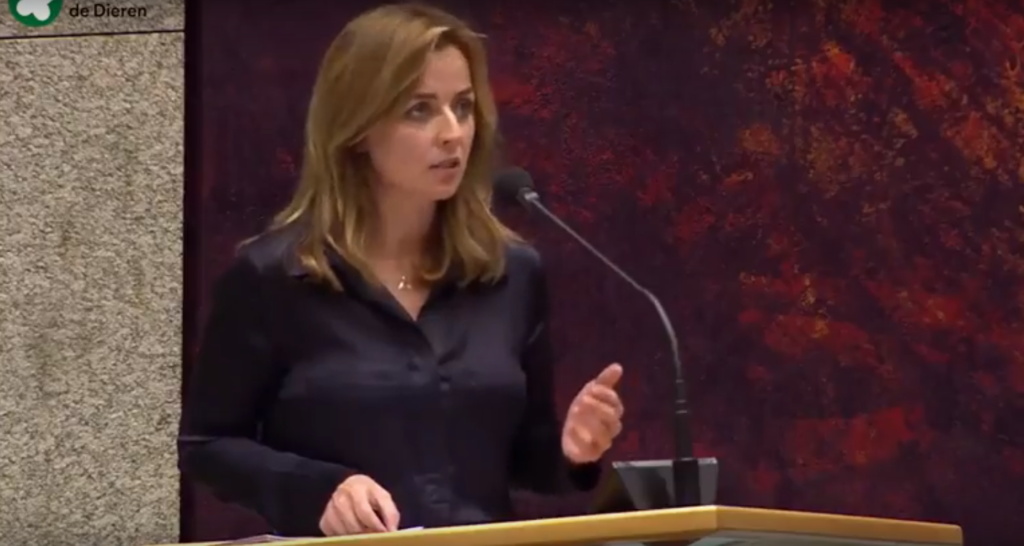
Marianne Thieme, hükümet anlaşması üzerine Meclis’te görüşlerini bildirdi
Hollanda da çevre, doğa ve mekan alanlarında stratejik politika analizleri yapan Çevresel Değerlendirme Ajansı (PBL), hükümetin sorumluluklarını ertelediğini açıkladı. İklim bilimcisi Bert Metz, diğer şeylerin yanı sıra, önümüzdeki beş yıl boyunca iklim değişikliğine karşı tüm tedbirleri almamızı ve 1.5 santigrat derece arasında kalmamız gerektiğini söyledi. Dolayısıyla bunu bu hükümet döneminde yapmalıyız.
Yeni hükümet planları Paris’te üzerinde anlaşmaya varılan iklim hedeflerinin yarısını bile karşılamıyor. Üstelik bir felaket gibi Ekonomi İşler Bakanı aynı zamanda da İklim Bakanı. Kabereci Claudia de Breij’in çok güzel bir şekilde özetlediği gibi kilo verme ve çikolatalı biberfindiği Bakanı. Aynı bakan, Hollanda’nın iklim politikası alanında hemen hemen tüm diğer Avrupa ülkelerinden daha kötü olduğunun farkında bile değil. Buda çok güven vermiyor.
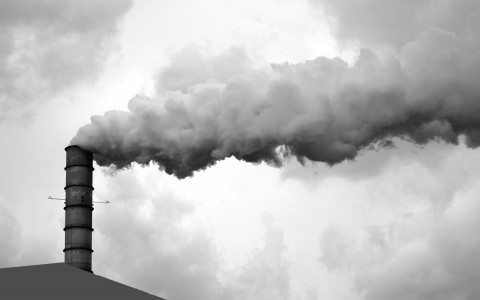
Hükümet iklim sorununun bir “çözümü” olarak, CO2’nin yeraltı depolaması ile birlikte geliyor. Modası geçmiş bir çağdan kalma, eski çağlardan beri gelen fosil bir plan. Bu yenilenebilir enerjiyi teşvik etmek amacıyla yapılan sübvansiyon potundan ödenmesi gerektiği için, uygulanması mümkün değildir, gereksiz enerji tüketir ve güneş panelleri ve yel değirmenleri pahasına yapılır. PBL ayrıca daha birçok önlem gerektiğine işaret etmektedir. Örneğin hayvancılığın azaltılması. Ve et ve süt tüketiminde bir azalmanın olması. Fakat bu vatandaşların, işletmelerin ve hükümetlerin davranış değişiklikleri göstermelerini gerektiriyor ve bu hükümet için mümkün görünmüyor.
Hollanda, çok uluslu şirketler için vergi cenneti ve refah devleti olmayı sürdürüyor. Vatandaşların günlük yaşam ihtiyaçları için çok daha fazla para ödediği yerlerde iş dünyası bu hükümetin ikramiyesini alıyor. Hayvanları Koruma Partisi: Hollanda’daki iş ortamını, temettü vergisini düşürerek değil, emek vergisini azaltarak cazip hale getirin. Çokuluslu şirketler için değil, yeniliği ve KOBİ’ler seçin diyor.
İklim ve dairesel ekonominin amaçlarını gerçekleştirmek için geniş bir refah kavramına dayanan farklı bir ekonomik modele ihtiyaç duyuyoruz. İngiliz ekonomist Kate Raworth, sözde “donut ekonomisi” hakkında güçlü fikirlere sahiptir ve sonlu bir gezegende sonsuz büyümenin imkansız ve sorumsuz olduğunu göstermektedir. Raworth’un vizyonunu eğlenceli bir şekilde açıkladığı bir TEDx filmini buradan izleyebilirsiniz.
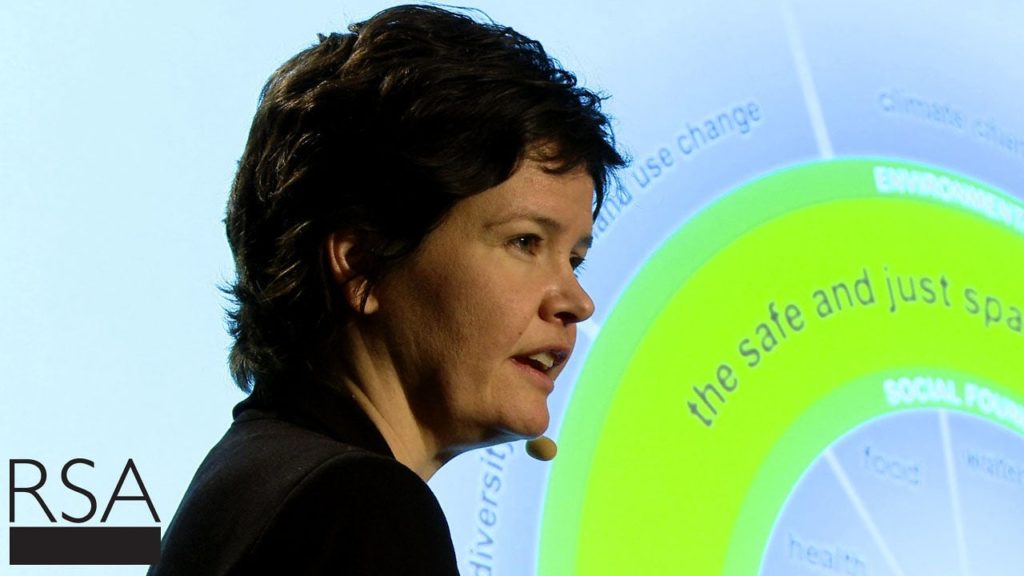
Ekonomist Kate Raworth
Ödeyebildiğimiz şeylerle değil, elimizden geleni yapabileceğimiz şeylerle ilgili. Varlığımızın şartları tehdit altındadır. Böcek popülasyonları ve kuş türleri için görülmemiş felaket sonuçlarıyla birlikte bir felaket biyoçeşitlilik krizindeyiz. Almanya’da, böceklerin% 75’i kayboldu. Sebep: tarım arazilerine neonikotinoidler ve Roundup gibi zehirlerin püskürtülmesi. Hollanda, dünyadaki en yüksek zehir kullanan ülkelerin ilk 3’unde yer almaktadır.
Kuzey Denizi’ndeki hayat üç kat azaldı. Hayvancılık endüstrisi, geniş ortamı asitlendirip kirleten muazzam miktarlarda amonyak yayıyor. Hollanda’da orijinal biyolojik çeşitliliğin sadece% 15’i kalmaktadır. Hem hayvancılık hem de balıkçılık bu hükümet tarafından korunuyor.
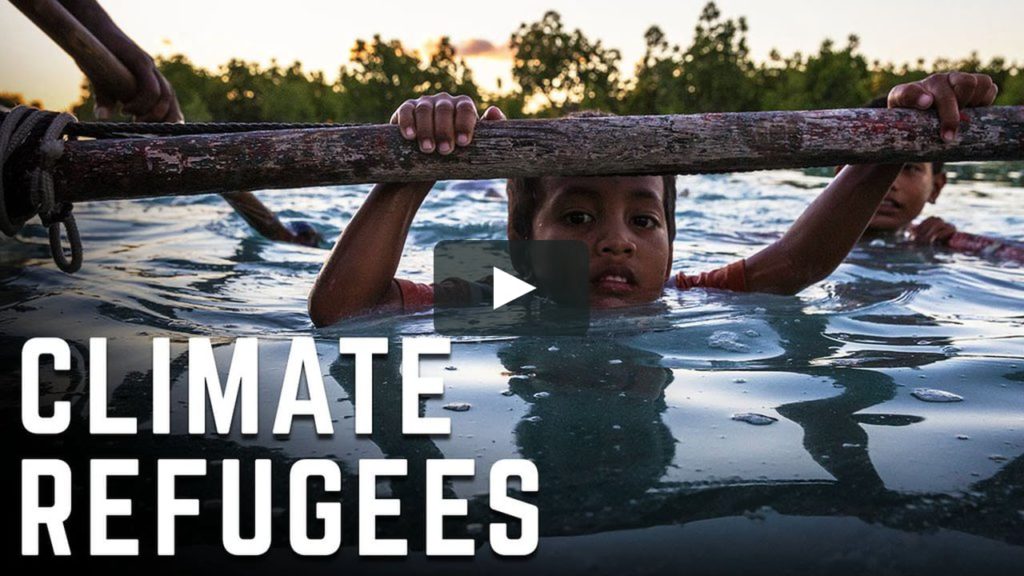
İklim mültecileri
The Lancet tarafından yapılan bir yazıda da iklim değişikliğinin 1 milyar mültecinin kaymasına neden olduğu gösteriliyor. Örneğin Orta Doğu ve Afrika’daki insanlar emtia çatışmalarından çekiliyorlar. Sınırları kapatmak hakkında konuşmak yerine göç nedenlerini çözmemiz gerekiyor. Ucuz tarım ürünlerimizi üçüncü dünya ülkelerine boşaltmak ülkelerdeki yerel pazarları bozar. Hollanda, saldırgan ihracat stratejisini gözden geçirmeli ve yerel çiftçilere bir şans vermelidir. Başbakan Hollanda tarım sektörüne övgüde bulunurken, Birleşmiş Milletler sadece aynı sektör için alarm veriyor : biz bu dünyayı tüketiyoruz.
Hayvanları Koruma Partisi, Batı insanının kısa vadeli çıkarları yerine gezegene odaklanarak radikal bir yön değiştirmeyi istiyor.
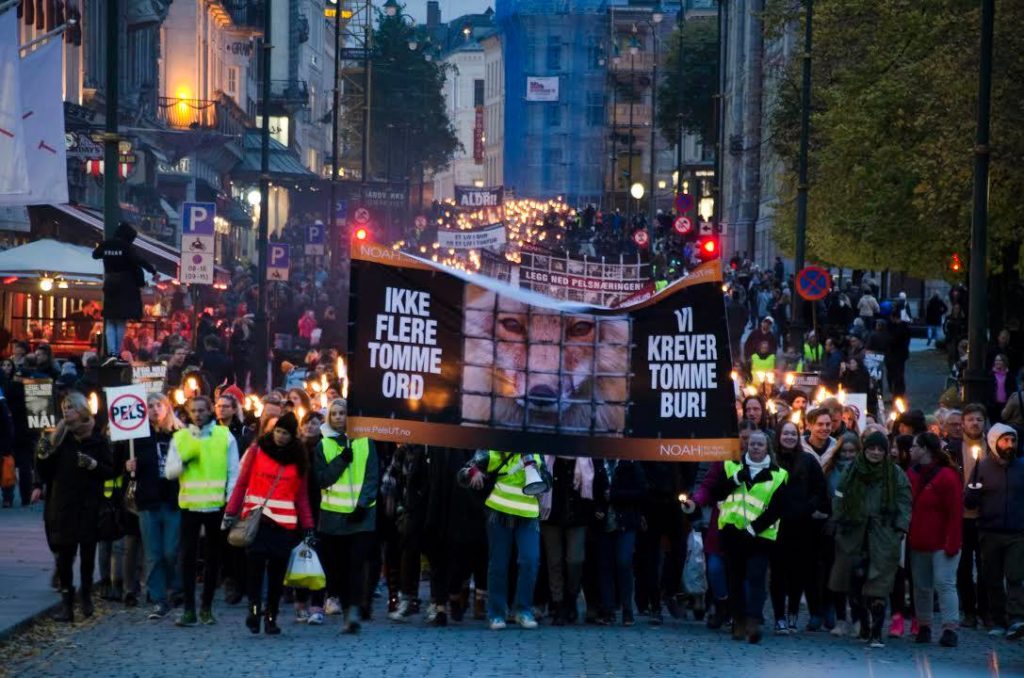
Norveç’teki kürk çiftliklerine karşı yürüyüş
Meclis görüşmeleri öncesi Norveç’te Oslo Üniversitesi’nde partimiz hakkında, sürdürülebilir ve hayvan gıdaları konularında dersler verdim. Bunun yanısıra kürk çiftlijklerine karşı Oslo’da düzenlenen Avrupa’nın en büyük yürüyüşünde konuştum. Yürüyüşe binlerce kişi katıldı. Harika! Konuşmamız ingilizce yapıldı ve buradan dinleyebilirsiniz.
Yeni hükümetimizin cesaret edemediğine New York cesaret etti: Belediye Başkanı, iklim değişikliği ve obezite ile mücadele etmek için Etsiz Pazartesinde bir pilot ilan etti.
İyi haftalar!
Marianne
In my last Worldlog, I briefly mentioned the fact that the Netherlands’ new government had presented their plans in the form of a coalition agreement. Last week, a debate on these plans took place in the Dutch Lower House. In practice, the plans mean that future generations are going to have to solve the challenges of climate change. For example, the Dutch cabinet has promised to close down five coal-fired power plants, but a timeframe for this will be set after 2023 – which is also after this government’s term of office. Furthermore, the cabinet mostly transfers its responsibility to market failure. For this cabinet, self-regulation is the ultimate solution. During the financial crisis and last summer, however, we have seen yet again how this self-regulation leads to unsafe situations.
Postponing and shirking responsibility for the future of our planet.

Marianne Thieme debating coalition agreement in Lower House
The Netherlands Environmental Assessment Agency (PBL), a Dutch government authority for strategic policy analysis in the fields of the environment, nature and spatial planning, calculated the coalition agreement and came to the same conclusion: the cabinet is mainly postponing. This in spite of the fact that according to climate scientists such as Bert Metz, we will need to take all possible measures against climate change in the coming five years in order to stay within the 1.5-degree target – that means, within the current government term.
Our new cabinet does not even meet half the agreed Paris climate targets. And to make matters worse, our Minister for Economic Affairs is also our Minister for Climate. A bit like having a minister for diets who is also in charge of chocolate candy, as Dutch comedian Claudia de Breij so eloquently put it. That same minister is not even aware of the fact that the Netherlands lags behind virtually every other European country in its climate policy. That does not inspire much confidence.

As a “solution” to the climate problem, the cabinet wants to introduce a system of underground CO2 storage. A fossil plan from another era, born from outdated ideologies. It is unfeasible, will cost an unnecessary amount of energy, and will be at the expense of solar panels and wind turbines – as it will be paid for with subsidies intended for the stimulation of sustainable energy. PBL has indicated that many more measures are needed, such as a decrease in livestock population, and a reduction in the consumption of meat and dairy products. However, that requires changes in the behaviour of citizens, companies and governments, which seems non-negotiable for this cabinet.
In the meantime, the Netherlands remains a tax haven – a welfare state for multinationals. While Dutch citizens have to pay a substantial higher sum for all everyday necessities due to the rise in VAT, the industry gets the jackpot thanks to this cabinet. The Party for the Animals believes a favourable business climate in the Netherlands should be achieved by reducing labour taxation rather than dividend taxation. Opt for SMEs and innovation rather than multinationals.
In order to meet our climate and circular economy targets, we need a different economic model based on a broad concept of prosperity. British economist Kate Raworth has some strong ideas on this subject and demonstrates with her so-called ‘doughnut economics’ that on a finite planet with finite resources, infinite growth is impossible and irresponsible. Click here to watch Raworth at TEDx explain her vision in an accessible manner.

Economist Kate Raworth
It is not about what we can pay, but what we can afford. The conditions for our existence are threatened. We are in the midst of a catastrophic biodiversity crisis, with disastrous consequences of an unprecedented scale for insect populations and bird species. In natural sites in Germany, 75% of all insects have disappeared. The cause: agricultural lands that are liberally sprayed with toxins such as neonicotinoids and Roundup. The Netherlands is among the three countries with the highest use of toxins in the world.
Life in the North Sea has decreased by one third. The livestock industry is emitting vast amounts of ammonia, literally acidifying and poisoning the surrounding areas. In the Netherlands, no more than 15% of the original biodiversity remains. And our new cabinet is protecting both livestock and fishing industry.

Climate refugees
On top of that, an article from The Lancet has shown that climate change has brought one billion refugees to move away from their homes. In Africa and the Middle East for example, people are driven from their countries by conflicts over natural resources. Instead of talking about closing our borders, we should be dealing with the causes of migration. The dumping of our cheap agricultural products is causing local markets in developing countries to collapse. The Netherlands needs to revise its aggressive export strategy in order to give local farmers a chance. Our prime minister applauds the Dutch agricultural sector, while at the same time, the United Nations is sounding the alarm bell on that very sector: we are depleting the earth’s resources.
The Party for the Animals wants a radical change of policy: giving priority to the planet instead of the short-term interests of Western man.

March against fur farming in Norway
Before the debate, I went to Norway to give a lecture on our party and sustainable and animal friendly food at the University of Oslo. In addition, I discussed Europe’s largest march against fur farming, which was attended by thousands of people. Amazing! My speech was in English and you can listen to it here.
Our new government might be too afraid to try, New York is not: the city’s mayor has announced the launch of a Meatless Monday pilot programme, as a way of tackling climate change and obesity. That means that on Mondays, no meat will be served. A strong example for the rest of the world!
Until next time!
Marianne